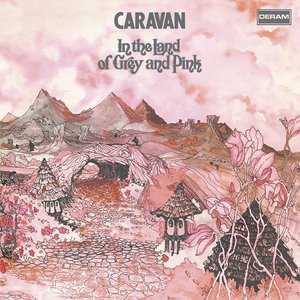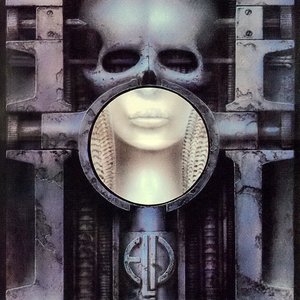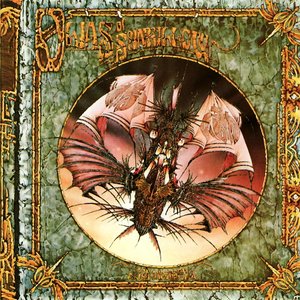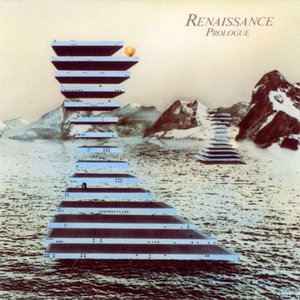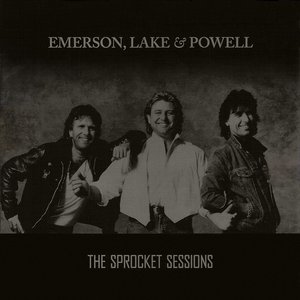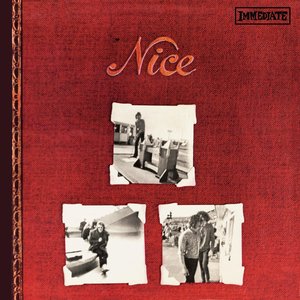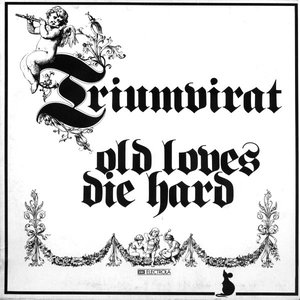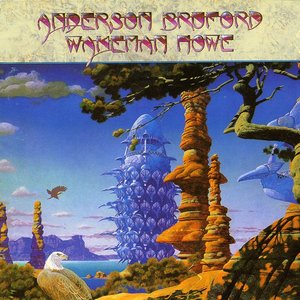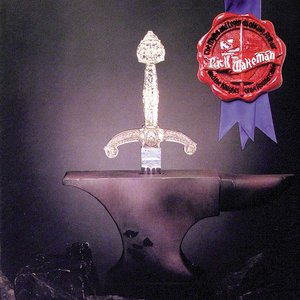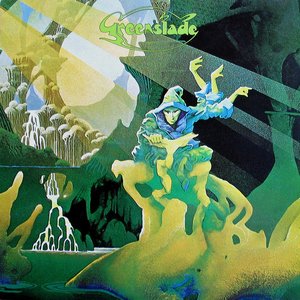Wiki
-
Release Date
6 November 1970
-
Length
5 tracks
Emerson, Lake & Palmer is the debut studio album by the English progressive rock band Emerson, Lake & Palmer, released in the UK in November 1970 on Island Records (catalog no. ILPS 9132). The album's initial North American release was several weeks later, in January 1971, on Atlantic Records' Cotillion Records subsidiary (catalog no. SD 9040). Recording took place at Advision Studios in July 1970 when the group had yet to perform live, and lasted for three months. The album was supported by the group's show at the 1970 Isle of Wight Festival.
Emerson, Lake & Palmer went to number four on the UK Albums Chart and number 18 on the Billboard 200 in the US. In Canada, the album reached number 17 on 3 separate occasions, beginning May 8th, and was in the Top 100 for 35 weeks. "Lucky Man" reached number 48 on the Billboard Hot 100 singles chart in the US.
Critical reception:
Reviewing in Christgau's Record Guide: Rock Albums of the Seventies (1981), Robert Christgau said: "This opens with 'The Barbarian,' a keyboard showpiece (not to slight all the flailing and booming underneath) replete with the shifts of tempo, time, key, and dynamics beloved of these bozos. Does the title mean they see themselves as rock and roll Huns sacking nineteenth-century 'classical' tradition? Or do they think they're like Verdi portraying Ethiopians in Aida? From such confusions flow music as clunky as these heavy-handed semi-improvisations and would-be tone poems. Not to mention word poems."
Professional ratings:
In more recent times, PopMatters ranked Emerson, Lake & Palmer the 9th best progressive rock album of all time, writing: "The ideas and styles crammed into these six songs are at once staggering and overpowering, yet they manage to pull it off so that it never seems superfluous or overwrought." Adam and the Ants member Chris Hughes consider Emerson, Lake & Palmer to be one of the 10 best progressive rock albums.
Artwork:
The cover art painting is by the British artist Nic Dartnell. Although it has been said to be originally intended for the American group Spirit, and that the bald-headed man on the left of the cover is Spirit's drummer, Ed Cassidy, the artist denied this in an interview with Mike Goldstein of RockPoP: "I'd like to take a moment and dispel a rumor that, according to Wikipedia, the image is somehow linked to the LA band Spirit. The fact is that, at the time I painted the ELP 'Bird', I also painted a portrait of Spirit which I sent to them in LA. A very similar bird was featured in the corner of that painting. I got a message from Spirit to say that if they had received their painting in time they would have put it on the back of Twelve Dreams of Dr. Sardonicus. I became friendly with Randy California over the years and I took the photograph that is on his 1982 12" EP All Along the Watchtower. The bald image in "Bird" has no connection to Ed Cassidy of Spirit and doesn't look anything like him. Ed still has the Spirit portrait – so I'm told."
Songs:
"The Barbarian"
Although the composition of this track was attributed to the three band members on early pressings of Emerson, Lake & Palmer, "The Barbarian" is in fact an arrangement for rock band of Béla Bartók's 1911 piano piece Allegro Barbaro. Musicologist Edward Macan notes, in his 2006 book on ELP's work Endless Enigma, that Bartók's widow contacted the band shortly after the album's release to request that the song's author credit be corrected.
"Take a Pebble"
"Take a Pebble" by Greg Lake is a full band arrangement, with the primary sections being a jazz arrangement by keyboardist Keith Emerson, and the middle section being a folk guitar work by Lake with water-like percussion effects by Carl Palmer, plus a bit of clapping and whistling. The end returns to the jazz arrangement by Emerson, starting with a modal based improvisation on top of the primary ostinato.
"Knife-Edge"
"Knife Edge" is based on the first movement of Leoš Janáček's Sinfonietta (1926) with an instrumental middle section that includes an extended quotation from the Allemande of Johann Sebastian Bach's first French Suite in D minor, BWV 812, but played on an organ rather than clavichord or piano.
"The Three Fates"
"The Three Fates" is a three-part "pseudo suite," written and predominantly performed by Emerson. It comprises three movements, one for each of the three sisters of Greek mythology known as the Three Fates or Moirai; Clotho, Lachesis and Atropos. Its overall length is a little under eight minutes. The "Clotho" movement was recorded at the Royal Festival Hall, London, with Emerson playing the venue's massive pipe organ. "Lachesis," which follows, is a piano solo of about 2 minutes 45 seconds. It features baroque and jazz influences ending in grand, sweeping arpeggios. In "Atropos," after briefly revisiting the pipe organ from the first movement, Emerson moves to a piano vamp in 7/8 with percussion accompaniment from Palmer (according to Macan's analysis of "The Three Fates" in Endless Enigma, Lake does not play on the track). An improvisation is layered over the top which eventually transforms into a polymetrically played repeated sequence in 4/4 time. The resonance of the final chords is curtailed by sound of explosions.
"Tank"
Palmer's solo spot "Tank" was composed with Emerson. The first section features Emerson on clavinet and piano, Lake on bass and Palmer on drums. The middle section is a drum solo. The final section features Emerson on clavinet and Moog synthesizer.
"Lucky Man"
"Lucky Man" is a folk rock ballad by Lake, with a notable solo on the Moog synthesizer by Emerson at the end, liberally using portamento. Lake wrote the song for acoustic guitar when he was 12. Although a quad mix of this album was never issued, "Lucky Man" was included on the DVD-Audio 5.1 surround version of Brain Salad Surgery (Rhino #R9 75980, 2000).
2012 reissue:
In May 2012, Steven Wilson of Porcupine Tree remixed the album for a 3 Disc reissue containing the original mix, the Wilson remix, and a DVD-Audio with Wilson's 5.1 surround sound version and a higher-bitrate version of his stereo mix.
Album descriptions on Last.fm are editable by everyone. Feel free to contribute!
All user-contributed text on this page is available under the Creative Commons Attribution-ShareAlike License; additional terms may apply.

